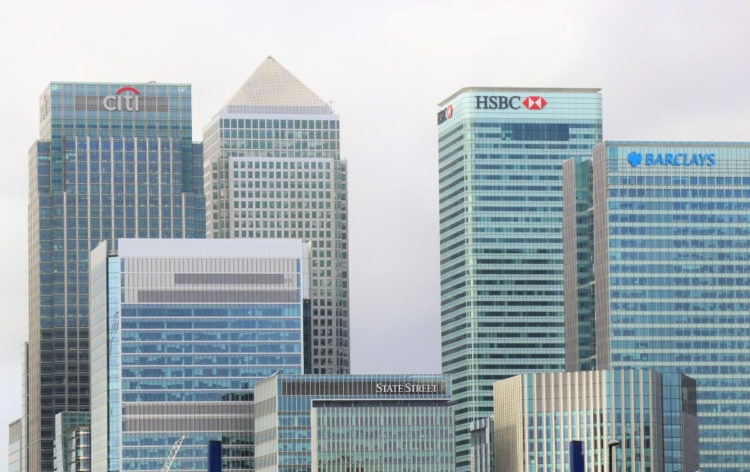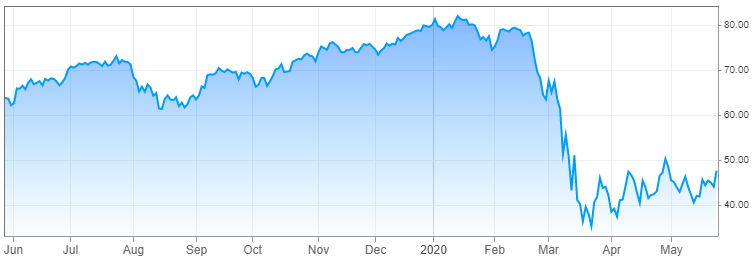Citigroup (C) Stock Surges by 9% During Early Trading

As trading opened on the New York stock exchange, the shares of Citigroup (C) gained 9%, rising from $44.10 to $48.12. The stock itself had quite a decent run before the outbreak of the COVID-19 pandemic. In June 2019 the stock was trading at $65. During the next 8 months the shares have risen steadily, until reaching $80 mark, in January 2020.

source: cnbc.com
As we can see from this chart it all went downhill after this point. By the middle of March, the stock fell to $35. During the subsequent months, the shares did regain some group and nowadays they are trading at $48 level. Obviously, the stock has to cover a lot of ground to return to February levels.
In 2019 the firm had annual revenue of $74.3 billion, which was 1.9% higher than a year ago. During the same period, the net income was $19.4 billion. According to the Chief Executive Officer of the bank, Michael L. Corbat, 2019 was the most profitable year for the company since 2006. He also pointed out, that earnings per share growth have reached 20%, rising at $8.04.
Since the outbreak of the COVID-19 pandemic the majority of blue-chip firms suffered serious losses. As they have published their first-quarter reports, it became apparent that many of them lost significant portions of their revenue. Interesting, this was not the case with Citigroup.
According to the first-quarter report, the revenue increased by 13%, compared to a year ago, reaching $20.7 billion. The net income did fall by 49%, however, this was mostly caused by rising credit losses. Consequently, this is the most important challenge faced by management. if in the subsequent quarters the default levels remain low than the company has an opportunity to restore its former degree of profitability.
How does Federal Funds Rate Affect Citigroup Stock?
Most financial analysts believe that everything else being equal, low-interest rates are beneficial for equities. This makes sense since this has two benefits for companies. Firstly, above all this policy enables those firms to borrow at cheaper rates and in general, makes the debt burden much easier to manage. At the same time, in times of near-zero interest rates, savers and investors are looking for higher returns and are more inclined to invest inequities. This can certainly benefit the stock market, especially the shares of dividend=paying firms.
However, when it comes to the banking industry, those companies represent an exception to the rule. Why is that the case? Well, it goes without saying that all those financial institutions do earn some money from various fees and commissions. However, in the case of the majority of the banks, the net interest income makes up 3/4 or more of the overall revenue. Ultra-low interest rates put serious pressure on net interest margins.
The reason behind this is the fact that Banks can not simply charge negative interest rates to customers. Surely some clients might tolerate this, but most customers will most likely just withdraw their money. They will look for financial institutions that do not charge people for the privilege of opening deposits. Consequently, if at some point in the future the Federal Reserve starts to hike rates again, this can be beneficial for Citigroup shares as well.


























Comments (0 comment(s))